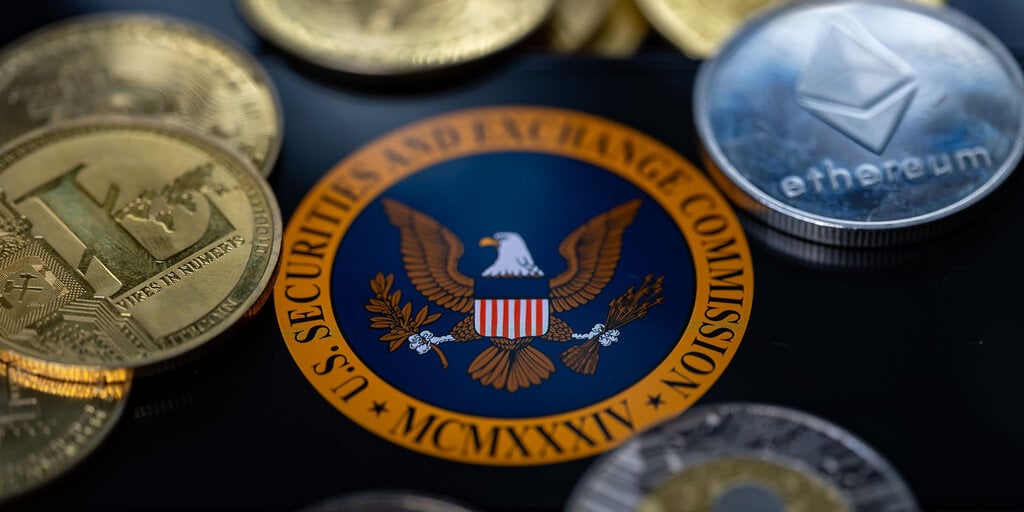As the U.S. Securities and Exchange Commission (SEC) continues its efforts to regulate cryptocurrencies, the agency’s enforcement threats have left a sprawling paper trail across the industry.
Whether it’s entities issuing coins or exchanges allowing them to trade, more and more market participants are waking up to what’s known as Well Notice. On Wednesday, such a letter surfaced in the NFT space, as leading marketplace OpenSea said he had received one too.
Before the SEC takes formal legal action against an entity, the agency often sends targets of an investigation a Well NoticeThe document describes the alleged securities law violations that have been committed, while providing the entity with an opportunity to refute these allegations.
Cryptocurrency watchers became familiar with the term last year when the SEC launched a series of enforcement actions following the collapse of major cryptocurrency exchange FTX.
Before the regulator sued Coinbasefor example, the company disclosed that it received a notice from Wells regarding the company’s asset listings and staking services. Since then, the list of organizations in the SEC’s crosshairs has only grown longer.
In response to Wednesday’s OpenSea revelations, Coinbase CEO Brian Armstrong said on Twitter (aka X) that he had been “a long time fan of Wells Enterprises,” telling OpenSea co-founder and CEO Devin Finzer: “Congratulations and welcome to the club.”
It should be noted that a Wells notice does not mean that an enforcement action is imminent. Rather, it means that the SEC’s Division of Enforcement will make a proposal to the Commission, which will then be considered and voted on by the Commission’s members, according to the SECOND.
Among the companies the SEC is set to pursue this year are decentralized exchange Uniswap and trading platform Robinhood. The SEC has not yet filed formal charges against the companies, which have each answered to their respective letters publicly.
Last year, a total of 46 well advisories were followed up by Cryptography-related enforcement measuresaccording to the Harvard Law School Corporate Governance Forum. This figure represents a 53% increase over the number of cryptocurrency industry entities involved in SEC lawsuits the previous year.
Under SEC Chairman Gary Gensler, the Division of Enforcement’s Cyber Unit was renamed in 2022, adding “Crypto Assets” to its official title. With more investigative attorneys and fraud analysts, the unit nearly doubled in size in 2022 to 50 full-time employees.
In the SEC announcementThe Law Enforcement Division identified key areas on which its investigative efforts would focus: digital asset offerings, exchanges, lending and staking products, DeFi platforms, NFTs, and stablecoins.
When asked to comment on the changes to the SEC’s scope of investigation, an SEC spokesperson asked: Decrypt to a Speech 2023 Gensler, in which the agency’s chief executive identified token issuers, crypto intermediaries, and lending and staking services as areas of concern.
Last month, SEC Enforcement Division Director Gurbir Grewal said Some of these enforcement actions are straightforward. He said: “Some unregistered cryptocurrency offerings are nothing more than outright scams, Ponzi schemes, affinity frauds or other types of scams.”
At the same time, the Division’s allegations may focus on the nuances of the offerings, such as stablecoins that aren’t stable, DeFi protocols that aren’t decentralized, and smart contracts that can be manipulated. In practice, Grewal described the SEC’s scope when it comes to cryptocurrencies as broad.
“While we can appreciate the innovation and technological advances of blockchain and distributed ledger technology, we must also be aware of the risks and harms,” he said. “As in any other field, we have a duty to analyze whether the activity is subject to federal securities laws and, if so, whether those laws have been violated.”
Edited by Andrew Hayward
Daily report Newsletter
Start each day with today’s top stories, plus original features, a podcast, videos and more.




